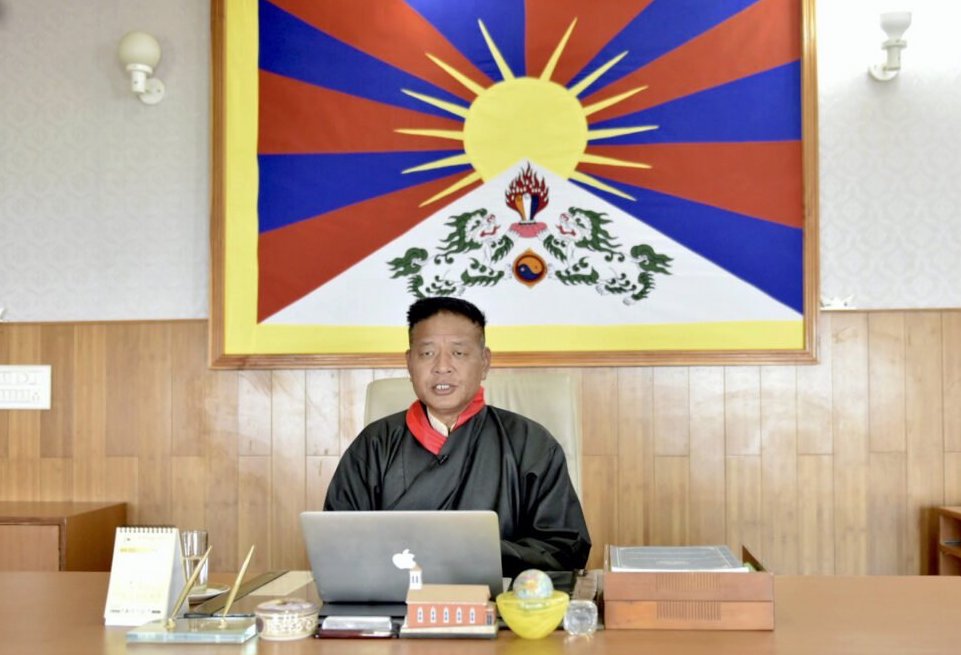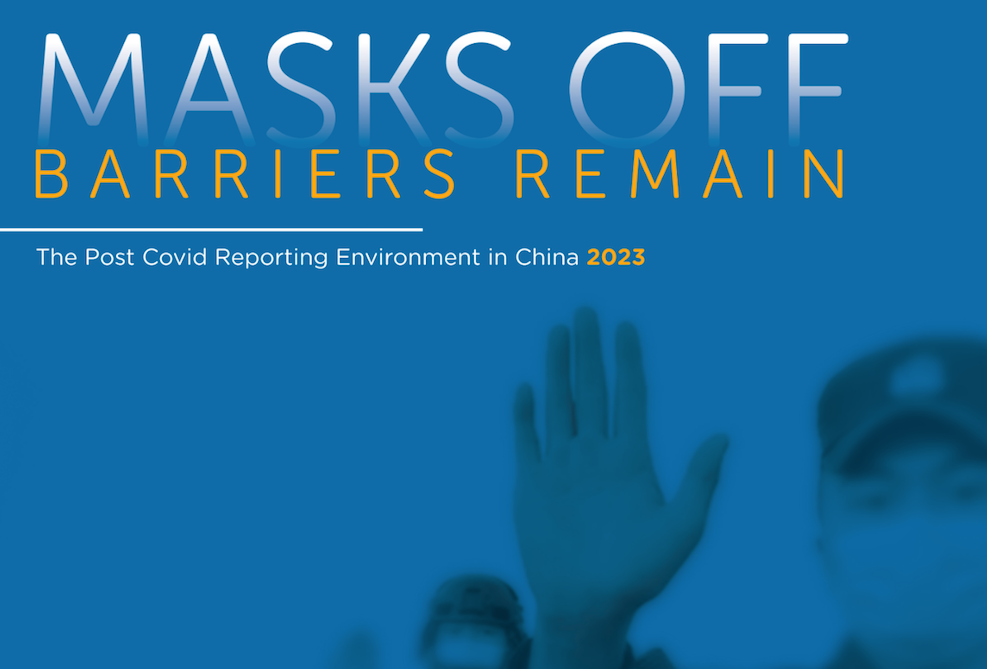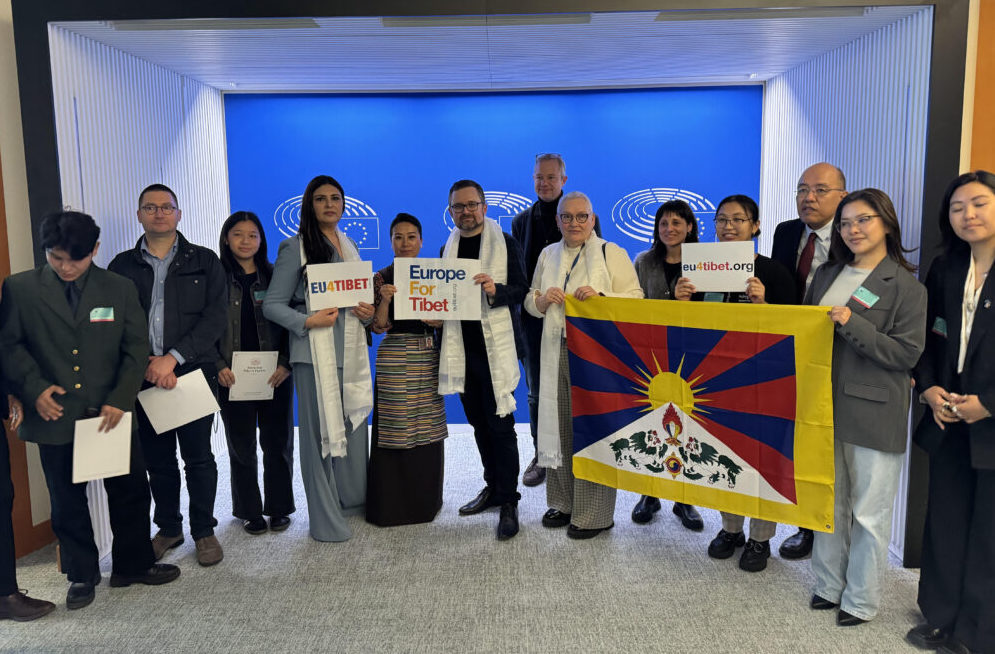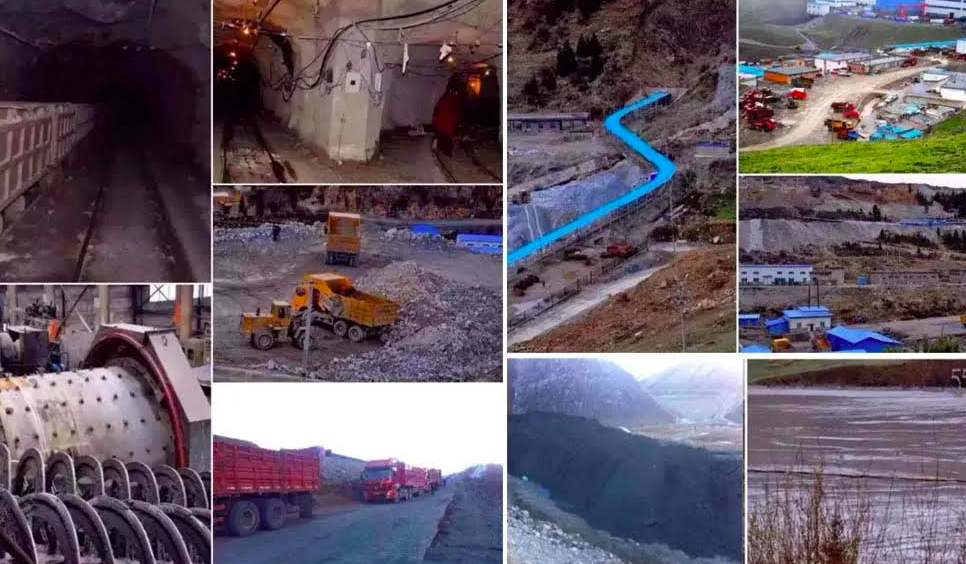By Tenzin Dharpo
DHARAMSHALA, Aug. 17: The Sikyong Penpa Tsering led Kashag (Cabinet) has dissolved the ‘Task Force on Sino-Tibet Dialogue’, an exclusive round table of the Central Tibetan Administration (CTA) that deliberates on negotiations with Beijing. A circular dated August 13 from the Kashag stated that the Task Force on Sino-Tibetan negotiation is dissolved with immediate effect and a strategic planning committee is set in its place.
According to sources, four members of the newly formed committee have been appointed; Karma Rinchen, the Secretary of Department of Security, Karma Choeying, Secretary of International Relations, Dawa Tsering, Director of Tibet Policy Institute and Tashi Gyatso, Secretary at Kashag Secretariat.
In addition, three advisors have also been appointed; former ministers Dongchung Ngodup and Tenpa Tsering and former envoy of His Holiness the Dalai Lama Kelsang Gyaltsen. The members and advisors will work with the Sikyong and report to him on developments primarily on negotiations with Beijing as well as on matters regarding the geopolitical climate of Beijing.
The task force on Sino-Tibet dialogue was formed in 1999 to gauge and devise strategies to bring Beijing on the discussion table to resolve the Tibetan issue. So far the task force has been convened 32 times with the last one held in December 2019 during the tenure of the former Sikyong Dr. Lobsang Sangay.
Despite nine rounds of talks between the representatives of His Holiness the Dalai Lama and representatives of Beijing since 2002, China has rejected Middle Way Approach, the official stance of the exile Tibetan government, that seeks genuine autonomy under the frame work of Chinese constitution.
In a recent interview with The Week on May 2, 2021, President Penpa Tsering said, “A key priority is the resolution of the Sino-Tibetan conflict. Keeping in mind the international situation and the political dynamics, we will have to study the issue more closely and come out with the right strategy. We also have to make good use of all the opportunities that come our way”.
“There has been no forward movement since 2010. My aim is to make some progress in resuming the dialogue. China does not recognise the CTA. The talks have always been held between China and the representative of the Dalai Lama,” he further said.











6 Responses
Resolution 39 is Lobsang Sangay inspired and it was a vengeful act against the TSJC by his friends and supporters like muddle headed former speaker Pema Juney. They both are equally responsible for this current crisis at Dharamsala, and they have other supports of a handful of Chithues with their own agendas. Many of them are good for nothing and it is better they resign now.
I want to know why the Tibetan Election Commission has no stand today and has refused to say a word. Is he is a dumb or muted by unknown master?
This situation cannot continue on for a long time and we appeal to the good sense to prevail. The Chithues are doing a disservice to the people and the Tibean nation and we cannot accept this any more now.
The dissolution of Task Force on Sino-Tibet Dialogue has come as good and welcome news. Under Lobsang Sangay it was just a talking shop and did not produce any result in 10 years of his Sikyong term. All he did was add more and more people close to him as member of the Task Force and as most of them were based outside India, it proved very costly for CTA to pay for their expensive flight tickets, hotel accommodation, etc. Sikyong Penpa Tsering can now use all the money saved for better CTA projects. Lobsang Sangay should redeem himself by asking his chamchas not to go against the wishes of His Holiness the Dalai Lama, CTA and Tibetan people. The disruption he and his chamchas seem to cause is only helping the authoritarian Chinese regime and not the suffering people of Tibet.
America and Europe have lost much credibility over the shocking handling of Afghanistan. This has played right into China’s hands which relies on weak and divided enemies. The same applies to the current situation in the CTA
I believe that China will not talk to Tibetan Govt or its representatives now. After the worldwide support to the Tibetan movement, China is furious and j wants to interfere in Tibetans internal matters, including religion. Tibetan should intensify their movement throughout the world, this is the right time to move ahead.
༄༅། །བཀའ་ཤག་ནང་དུ་བཀའ་བློན་གཅིག་ཀྱང་མེད་པར་འདེམས་ཐོན་སྲིད་སྐྱོང་མིང་འཁུར་གང་ཟག་ཁེར་ཀྱང་ནས་ཐག་གཅོད་ཆེན་པོ་འདི་འདྲ་བྱེད་ཆོག་པ་བཅའ་ཁྲིམས་རིན་པོ་
ཆེའི་དོན་ཚན་གང་དུ་གསལ་ཡོད་དམ། མཇལ་རྒྱུ་ལ་ནི་ལས་དོན་གང་ཞིག་འགྱུར་བ་གཏོང་དགོས་ཚེ་བཀའ་ཤག་ནང་སྲིད་སྐྱོང་གིས་དབུ་འཁྲིད་པའི་འོག་བཀའ་བློན་བདུན་ལས་མི་མང་བས་ཐོག་སྤྱི་མོས་སམ་མང་མོས་ཐོག་གཅོད་བྱ་རྒྱུ་ལས་གང་ཟག་སུ་རུང་ཞིག་གིས་ཐག་གཅོད་བྱེད་མི་ཆོག་ཅེས་འཁོད་ཡོད་པ་མཇལ་རྒྱུ་འདུག གུས་པ་རང་ཉིད་ཀྱི་དོགས་གཞིར་དེ་སྔོན་ཨ་རིའི་སྲིད་འཛིན་ཟུར་པ་ཌོ་ནལ་ཊོམ་གྱིས་སྲིད་ཟུར་ཨོ་བྷ་མས་འཆར་བཀོད་འཆར་གཞི་ཡོངས་སུ་རྫོགས་པ་ཡག་ཉེས་ལ་མ་ལྟོས་པར་མགོ་གཏིངས་སློག་ཀྱང་བྱས་པ་ལྟར་ད་ལྟའི་འདེམས་ཐོན་སྲིད་སྐྱོང་སྤེན་ཚེས་ཀྱང་སྲིད་ཟུར་བློ་སེང་གི་འཆར་བཀོད་འཆར་གཞི་རྣམས་མགོ་གཏིངས་སློག་སྒོ་བཙུག་པའི་དོགས་པ་འདུག་ཏེ་དེ་འདྲ་མིན་པའོ་སྨོན་ལམ་ཡོད།
The Kashag is doing its best to find a negotiated solution to the Tibetan problem, but China is only buying time and wishes that the Tibetan movement cannot sustain beyond a one hundred years time period. It may or may not be a wishful thinking for anybody, as a lot depends on how we put up a united fight against their colonialism for years to come.
The present scenario at Dharamsala, and how the cracks seen in the exile parliament will certainly send a clear signal to all those who are directly or indirectly connected to us, and especially the CCP and its agents are closely monitoring how the current stalemate is resolved there. The CCP may not show much interest to talk with the CTA, when they found us to be a weak and divided over many core issues. They may be laughing now, because they can see how successful future Sino-Tibetan talks will be if we disagree with each other.